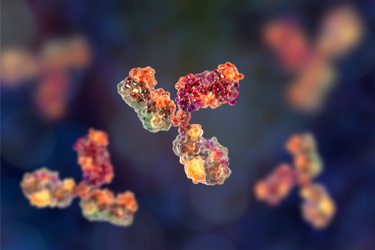What Are Antibody-Drug Conjugates (ADCs)?

Antibody-drug conjugates (ADCs) represent a significant advancement in targeted cancer therapy by leveraging the specificity of monoclonal antibodies (mAbs) to deliver potent cytotoxic payloads directly to tumor cells. This targeted approach minimizes systemic toxicity and has spurred ADCs' emergence as one of the fastest-growing areas in oncology.
ADCs comprise three key components: a tumor-specific mAb, a stable linker, and a potent cytotoxic agent. The mAb recognizes and binds to unique antigens on cancer cells, facilitating ADC internalization. Cleavage of the linker within the tumor cell releases the cytotoxic payload, triggering cell death.
These payloads, typically belonging to tubulin or DNA-damaging families, exhibit high potency but necessitate precise delivery. Therefore, linker stability ensures payload attachment until internalization, preventing premature release and adverse effects. Peptide linkers, cleaved by lysosomal proteases after uptake, are commonly employed. Careful consideration of conjugation chemistry is crucial, and the drug-to-antibody ratio (DAR) must be optimized to balance efficacy and safety.
ADC development presents unique challenges. Ensuring target specificity to avoid off-tumor toxicity, maintaining antibody affinity post-conjugation, and preventing immune responses against the ADC itself are key considerations. Additionally, potent anti-tumor activity despite fractional payload delivery is paramount.
Explore how overcoming inherent challenges in design, conjugation, and production is paving the way for continued advancement and personalized ADC-based treatment regimens.
Get unlimited access to:
Enter your credentials below to log in. Not yet a member of Life Science Leader? Subscribe today.
